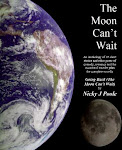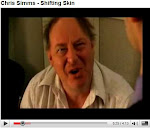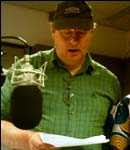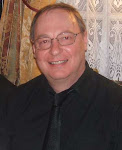A death in the family - a tragedy, good fortune, a coincidence? Or even more?
#
(This story was originally published in Chorley and District Writers' Circle magazine, Aware, issue 3, November 2007, on the theme Home and Away.)
I stepped into the familiar hallway over a dune of junk mail circulars and free-sheet newspapers. The air was at once familiar yet cloyingly strange – the house had been shut up for many weeks. It was tomb-like, yet I breathed the air I knew from childhood. So different from the boiled cabbage, urine and disinfectant soaked atmosphere I had had to tolerate recently.
I entered the living room. Brown wallpaper, some faded floral pattern whose colour scheme seemed to be based on recycled teabags. The fusty armchair, seat bellowed inwards. Dull books on the shelf, dull ornaments and pictures. All this would have to change. Not a problem now. This chair would be first to go. This was where my father died.
At least, that is to be assumed. That is where they had found him. It was a fair assumption. It’s where I had last seen him alive.
‘What am I going to do?’ he had asked. ‘Everything was going to come to you. And I’ve tried to keep going on my own, but it’s too much.’
‘You are very ill, father,’ I had agreed.
‘But I can’t look after myself anymore.’
‘I look after you, father.’
‘I know you do.’ He tried, painfully, to readjust himself in his chair, and grimaced. ‘Pass me one of my little friends, will you.’
I handed him the book-sized bag – it had been a sort of pencil case, I think. But, instead of pencils, it contained spliffs of cannabis, papers, lump of ‘substance’ wrapped in Clingfilm. He took one, lit it, and drew deeply on it. Hot tiny cinders fell from the end and burned pinprick holes in his old shirt – I was surprised the health visitor never picked up on this. ‘If I go into a care home, this is the one thing I will miss,’ he said at length, hoarsely. ‘You know, this is the only thing that gives me any relief from the pain?’
‘Yes, I know, father. You’ve told me many times. Many times. You forget, don’t you?’
‘Do I?’
I reached for his other medical kit, the one with the insulin, and, as I did so, I couldn’t help feeling how life could be so unfair, inflicting a man with two severe illnesses, diabetes and MS, either of which could, if left untreated, kill him. I checked his blood sugar tester and absent-mindedly looked up the dose – I already knew the table pretty much by heart.
‘The thing is, I can’t go into care unless I sell up the house. I will need the money to pay for the home.’
‘Not on medical grounds,’ I reminded him, patiently, for the umpteenth time.
‘But I will need the residential care – I need somewhere comfortable where I’ll be properly looked after.’
I passed him his syringe. ‘The Health Service will look after you.’
‘No they won’t,’ he insisted, as always. He equated National Health Service care as being in hospital, incarcerated, waiting out his days.
‘Here you are.’
He started to cough intermittently, the smoke irritating his lungs. God help us, I thought, if he also ended up getting cancer. However, I noticed that, apart from the shaking from each minor spasm, the tremor in his hands had eased. I wondered if he would make the injection himself. It would be easier.
‘You do it, son. My little friend is making me a bit woozy.’
‘You can do it, Dad,’ I reassured him. ‘Your hand’s much steadier now.’
I had left shortly after and that’s how they found him. When the post-mortem showed he had died from a pulmonary embolism, that there was air in the injection fluid and my fingerprints on the syringe, I was arrested and charged with murder. I had means, opportunity and, with the chance of being bequeathed an entire house, the motive. They made it sound like I had almost been sloppy. Some rising star was picked by the CPS to make the prosecution case just for the practice, so sure were they of winning, of sending me away for a long time. I should get used to my prison cell. It would be my home for many years to come.
I had my own hot-shot lawyer, however. While I was on remand, waiting interminably for the case to come to court, we went over my defence. Counsel is not allowed to coach a witness, even one speaking in his own defence. There is no law against doing things the other way around, however.
I merely suggested that my father had increasingly relied on illicit drugs for pain relief. It was perhaps no surprise that he had graduated from just cannabis to intravenous heroin. And the post-mortem also concluded that my father had enough of the stuff in his bloodstream to anaesthetise a horse. Certainly that would have been enough to kill him. I often gave him his insulin injections because of his hand tremor. Of course my fingerprints would be on the syringe. It would not be possible, with his prints and mine both present, to say who handled the little glass tube last.
Why, if I had wanted to kill my father, would I use two different methods to finish him off, especially one that was so easily detectable?
This was sufficient to sew doubt in the mind of the jury. Much more reasonable to assume the old man had been ham-fisted in preparing the injection for himself, before I even arrived for my daily visit. That I’d already left before took it. The simplest explanation is always thought the most likely.
And so, the case had collapsed. I was discharged, a free man, not put away to rot out the remainder of my life, any more than my father had needed to be put away to see out his own.
I stood in the house I had grown up in, and had now inherited, without a stain on my character, nor, for that matter, on my conscience.
The fact that I had prepared the fatal injection containing both heroin and the bubble of air that had formed a clot in my father’s lungs, swiftly and painlessly killing him, was irrelevant. I was in the clear, I was home free.
I was home.
I entered the living room. Brown wallpaper, some faded floral pattern whose colour scheme seemed to be based on recycled teabags. The fusty armchair, seat bellowed inwards. Dull books on the shelf, dull ornaments and pictures. All this would have to change. Not a problem now. This chair would be first to go. This was where my father died.
At least, that is to be assumed. That is where they had found him. It was a fair assumption. It’s where I had last seen him alive.
‘What am I going to do?’ he had asked. ‘Everything was going to come to you. And I’ve tried to keep going on my own, but it’s too much.’
‘You are very ill, father,’ I had agreed.
‘But I can’t look after myself anymore.’
‘I look after you, father.’
‘I know you do.’ He tried, painfully, to readjust himself in his chair, and grimaced. ‘Pass me one of my little friends, will you.’
I handed him the book-sized bag – it had been a sort of pencil case, I think. But, instead of pencils, it contained spliffs of cannabis, papers, lump of ‘substance’ wrapped in Clingfilm. He took one, lit it, and drew deeply on it. Hot tiny cinders fell from the end and burned pinprick holes in his old shirt – I was surprised the health visitor never picked up on this. ‘If I go into a care home, this is the one thing I will miss,’ he said at length, hoarsely. ‘You know, this is the only thing that gives me any relief from the pain?’
‘Yes, I know, father. You’ve told me many times. Many times. You forget, don’t you?’
‘Do I?’
I reached for his other medical kit, the one with the insulin, and, as I did so, I couldn’t help feeling how life could be so unfair, inflicting a man with two severe illnesses, diabetes and MS, either of which could, if left untreated, kill him. I checked his blood sugar tester and absent-mindedly looked up the dose – I already knew the table pretty much by heart.
‘The thing is, I can’t go into care unless I sell up the house. I will need the money to pay for the home.’
‘Not on medical grounds,’ I reminded him, patiently, for the umpteenth time.
‘But I will need the residential care – I need somewhere comfortable where I’ll be properly looked after.’
I passed him his syringe. ‘The Health Service will look after you.’
‘No they won’t,’ he insisted, as always. He equated National Health Service care as being in hospital, incarcerated, waiting out his days.
‘Here you are.’
He started to cough intermittently, the smoke irritating his lungs. God help us, I thought, if he also ended up getting cancer. However, I noticed that, apart from the shaking from each minor spasm, the tremor in his hands had eased. I wondered if he would make the injection himself. It would be easier.
‘You do it, son. My little friend is making me a bit woozy.’
‘You can do it, Dad,’ I reassured him. ‘Your hand’s much steadier now.’
I had left shortly after and that’s how they found him. When the post-mortem showed he had died from a pulmonary embolism, that there was air in the injection fluid and my fingerprints on the syringe, I was arrested and charged with murder. I had means, opportunity and, with the chance of being bequeathed an entire house, the motive. They made it sound like I had almost been sloppy. Some rising star was picked by the CPS to make the prosecution case just for the practice, so sure were they of winning, of sending me away for a long time. I should get used to my prison cell. It would be my home for many years to come.
I had my own hot-shot lawyer, however. While I was on remand, waiting interminably for the case to come to court, we went over my defence. Counsel is not allowed to coach a witness, even one speaking in his own defence. There is no law against doing things the other way around, however.
I merely suggested that my father had increasingly relied on illicit drugs for pain relief. It was perhaps no surprise that he had graduated from just cannabis to intravenous heroin. And the post-mortem also concluded that my father had enough of the stuff in his bloodstream to anaesthetise a horse. Certainly that would have been enough to kill him. I often gave him his insulin injections because of his hand tremor. Of course my fingerprints would be on the syringe. It would not be possible, with his prints and mine both present, to say who handled the little glass tube last.
Why, if I had wanted to kill my father, would I use two different methods to finish him off, especially one that was so easily detectable?
This was sufficient to sew doubt in the mind of the jury. Much more reasonable to assume the old man had been ham-fisted in preparing the injection for himself, before I even arrived for my daily visit. That I’d already left before took it. The simplest explanation is always thought the most likely.
And so, the case had collapsed. I was discharged, a free man, not put away to rot out the remainder of my life, any more than my father had needed to be put away to see out his own.
I stood in the house I had grown up in, and had now inherited, without a stain on my character, nor, for that matter, on my conscience.
The fact that I had prepared the fatal injection containing both heroin and the bubble of air that had formed a clot in my father’s lungs, swiftly and painlessly killing him, was irrelevant. I was in the clear, I was home free.
I was home.
The end
.jpg)






2 comments:
Spoooky - what is CPS? and I was surpirsed at the incompete senetences but they do work.
CPS is the Crown Prosecution Service, the UK government department that prosecutes alleged criminals - see http://en.wikipedia.org/wiki/Crown_Prosecution_Service for details.
Thanks for the comment, and for visiting my site! (It's nice to surprise people too!)
Post a Comment